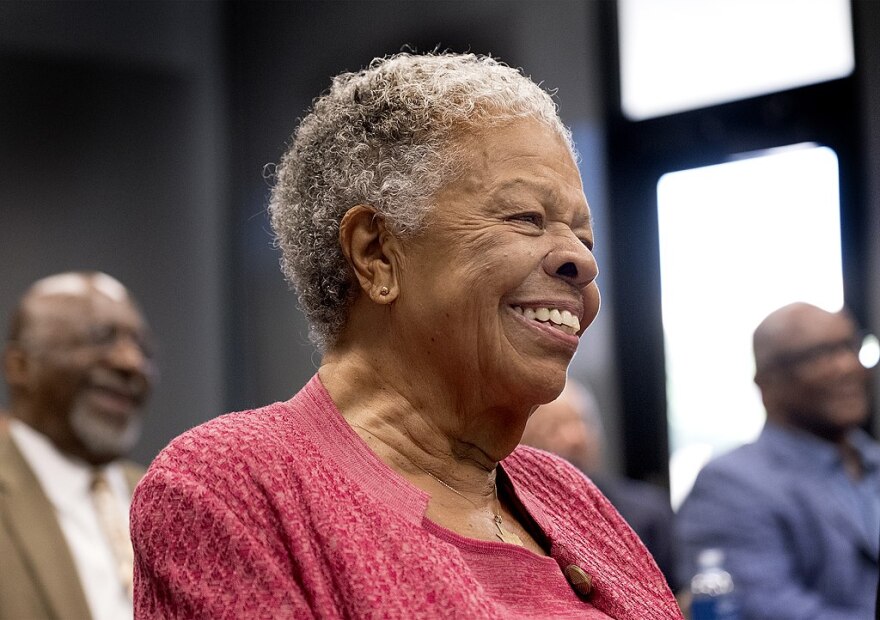From Texas Standard:
The current focus on civil rights and justice for black Americans is reminiscent of the 1960s when African Americans spoke out, protested racism and worked to make change.
Wilhelmina Delco took a leading role in advocating for civil rights in Austin, first as a member of the Austin School Board, then as a 20-year member of the Texas House of Representatives. She was the first African American elected to public office in Austin. Today, she says the protests that have galvanized many people in the wake of George Floyd's death have her feeling optimistic.
Delco told Texas Standard host David Brown on Wednesday that her public service career began because she wanted to hold a fundraiser for the Sims Elementary School PTA. The Austin school district wanted to charge the PTA more to use a school facility than the group expected to raise.
"I was concerned that since we were a district from a minority community, there was no voice in making these decisions on the school board," Delco said.
She ran for a seat on the school board, and won election just a few days after the assassination of Martin Luther King Jr. in 1968. She was the first African American to serve on the board.
"I think a lot of people felt, well, 'I'm not like that, and I wouldn't do that.' And this was a way of showing their liberalism," she said.
Just as white people today seem to be asking individual African Americans to speak for their race, Delco said after her election to the school board she was often asked by whites, "What do black people think?" She still gets those questions.
"I said, 'I can tell you what I think. But can you speak for your whole race, and your whole ethnicity and your whole sex? Well, neither can I,'" Delco said.
But Delco does believe in representative local government – that people of color should be civic leaders in the communities where they live. Public funds also need to be fairly allocated, she said.
"At the basis of many elected offices and experiences is a budget," Delco said. "If you have public money, everybody feels like, 'That's my money,' and they want to get part of it. So it's important to me to make sure that there's diversity in all those elective appropriations."
That also goes for how police departments are funded. She said entities that receive public funds should be accountable to the communities they serve.
"In any public-supported organization, if you're spending my money, I have a right to know what you're spending it for," Delco said. "And I have a right to speak out on what I think ought to be priorities. And I think that's what's going on now."
Delco said funding decisions often reflect a lack of diversity in leadership. The priorities of some constituencies are often given more weight than those of other groups. She said Floyd's death is a manifestation of that.
"Somebody actually took pictures of an instance of what a lot of people have been complaining about," Delco said. "There are a lot of people who voted [and] they had never heard or believed in anything like that."
Delco said the protests in response to Floyd's killing leave her feeling optimistic.
"You have a lot of non-blacks, non-minorities, a lot of non-poor people," she said. "I'm impressed, when you see those marches down the street. You see young people, old people, wheelchairs. You see the diversity that is the community."
Web story by Shelly Brisbin.




